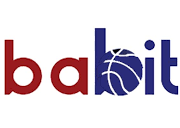
In the complex world of financial services, transparency and compliance are paramount. As global economies intertwine more closely, the importance of robust anti-money laundering (AML) practices and effective sanction screening has never been more critical. This is where organizations like Open Sanctions, Open Ownership, and the Global Legal Entity Identifier Foundation (GLEIF) step in, providing tools and collaborations that are reshaping the landscape of financial security.
The Importance of Legal Entity Identifiers in Modern Finance
Legal Entity Identifiers (LEIs) have emerged as a cornerstone in the architecture of global finance, offering a clear and standardized identifier that can be used across borders to enhance transparency. By obtaining an LEI number, entities can significantly ease their participation in the international marketplace while ensuring compliance with global regulations.
LEI Registration: A Gateway to Enhanced Financial Compliance
LEI registration is a crucial step for entities that want to partake confidently and securely in the global financial ecosystem. This process involves obtaining an LEI number, which serves as a universally recognized identifier. An LEI certificate is not just a regulatory requirement; it’s a tool for greater transparency in financial transactions.
Collaborative Efforts of Open Sanctions, Open Ownership, and GLEIF
Strengthening Sanctions Screening
Open Sanctions, an initiative providing comprehensive data on individuals and organizations tied to financial crimes, uses LEI numbers to enhance the accuracy of its screening processes. By integrating LEI data, Open Sanctions can offer more reliable and precise information, aiding institutions in avoiding inadvertent breaches of sanctions.
Advancing Global Transparency with Open Ownership
Open Ownership champions the cause of transparency by promoting the disclosure of ownership information. The integration of LEI data into their frameworks helps map complex ownership structures more effectively, illuminating the entities behind financial operations and thus bolstering anti-money laundering efforts.
GLEIF’s Role in Facilitating Secure, Transparent Operations
GLEIF not only oversees the issuance of LEI codes but also ensures that the LEI system operates with high standards of data quality and accessibility. This support fundamentally enhances the operational capabilities of both Open Sanctions and Open Ownership, enabling them to execute their mandates more effectively.
How to Apply for an LEI Number
Applying for an LEI number is a straightforward process that can be initiated online. Entities must provide accurate and up-to-date information about their ownership and management structure, which is then verified and used to generate an LEI code.
The Impact of LEI on Anti-Money Laundering Practices
With an LEI number, financial institutions can more efficiently identify and verify the entities they do business with. This capability is crucial in preventing money laundering activities, as it provides a clearer view of the financial landscape and helps highlight any potentially risky transactions.
Future Directions in Financial Transparency
The collaboration between Open Sanctions, Open Ownership, and GLEIF is just the beginning. As more organizations recognize the benefits of LEI numbers in enhancing financial security and compliance, the adoption of LEI is expected to grow, further strengthening the global financial system.
Conclusion
The synergistic collaboration between OpenSanctions, Open Ownership, and GLEIF represents a significant advancement in the field of financial regulation and transparency. This partnership is pivotal as it leverages the power of Legal Entity Identifiers (LEI) to ensure more accurate, efficient, and reliable sanctions and anti-money laundering screenings across global financial landscapes.
Through their combined efforts, these organizations are not just facilitating compliance but are also forging a path toward a more transparent global economy. The integration of LEI numbers into everyday financial transactions and regulatory processes ensures that the identities behind global financial activities are no longer obscured, thereby significantly reducing the risk of financial fraud and enhancing the integrity of international markets.
Furthermore, this collaboration sets a precedent for how global data standards and technological advancements can be harmoniously integrated to tackle complex challenges in the financial sector. The role of technology in this partnership is indispensable, as it provides the necessary infrastructure to disseminate LEI data effectively and ensure that it is accessible and actionable.
Looking forward, the impact of these efforts will likely extend beyond the realms of compliance and risk management. As LEI adoption grows, it will facilitate broader applications in financial services, such as enhancing customer experience by streamlining the verification processes and improving the speed and accuracy of financial transactions. Additionally, it can play a crucial role in the development of digital banking and fintech innovations, where verified and transparent data are paramount.
In essence, the work being done by OpenSanctions, Open Ownership, and GLEIF is crucial in crafting a future where financial transactions are not only secure but are also inherently transparent and efficient. Their ongoing commitment to improving financial practices globally not only enhances business operations but also fortifies the global economy against the vulnerabilities of financial crimes. As these initiatives continue to evolve and expand, their influence is set to redefine the standards of financial transparency and security in the digital age.










